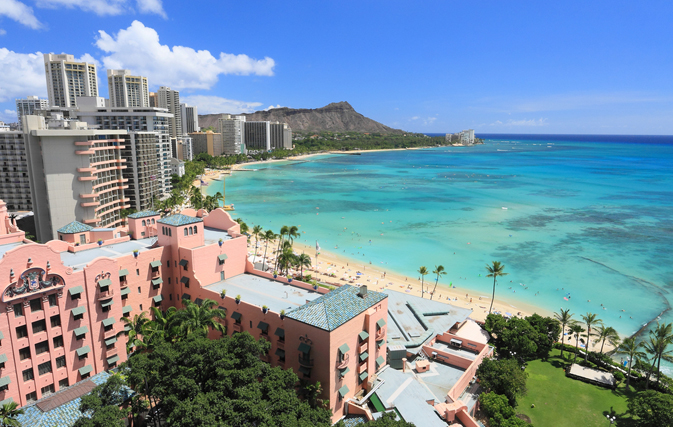WAILUKU, Hawaii — Hawaii Gov. David Ige expressed support for raising the state’s transient accommodations tax by 1 per cent while maintaining the counties’ share of hotel room taxes at $93 million.
Ige said Friday he opposed a 2.75 percentage point increase in the transient accommodations tax, or hotel room tax, that had been proposed by House and Senate money committees in late April, shortly before the end of this year’s lawmaking session.
The governor said a 2.75 percentage point increase – from 9.25 per cent to 12 per cent, bringing in another $1.3 billion over 10 years – would be “too big a burden to be borne by the visitor industry.”
Instead, Ige said a 1 percentage point increase would “be a reasonable increase, especially if it’s for a specific period of time and would go toward helping to fund the transit project.”
Ige’s comments came the same day lawmakers announced a special session to address rail funding would be held Aug. 28 to Sept. 1.
Senate President Ronald Kouchi and House Speaker Scott Saiki have assured the Federal Transit Administration they intend to hold a special session to resolve the funding crisis for rail, which has had its cost estimate skyrocket from $5.2 billion a few years ago to the current estimate of $10 billion, the Maui News reported.
Ige said something needs to be done for rail to move forward.
“Ultimately, it is clear that additional funds are needed and so certainly a contribution from the transient accommodations tax for a period of time certainly is something that I would be open to consider,” he said.
When asked what he believes would be an appropriate allocation of hotel room tax funds for the state’s four main counties, which saw their share fall from $103 million to $93 million this year, Ige said he believes the lower amount is “fair.”
County officials have been adamant that the counties deserve a greater share of the hotel room tax revenue.
Maui County Council Chairman Mike White has argued from 2007 to 2015 counties have incurred more than $170 million in additional costs for parks and fire and police services. However, in that time period, the counties have received only another $2.2 million in room tax revenue, while the state has taken in an increased portion of $196.6 million.
